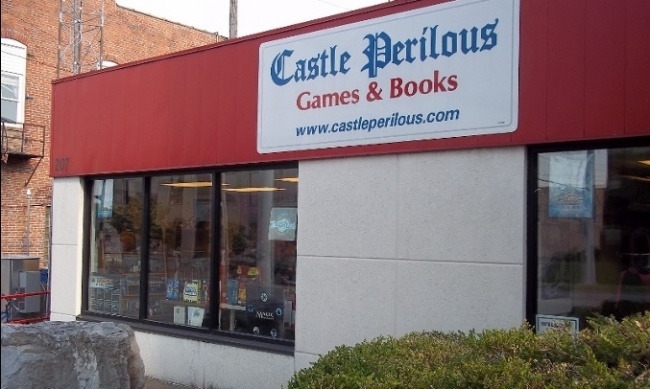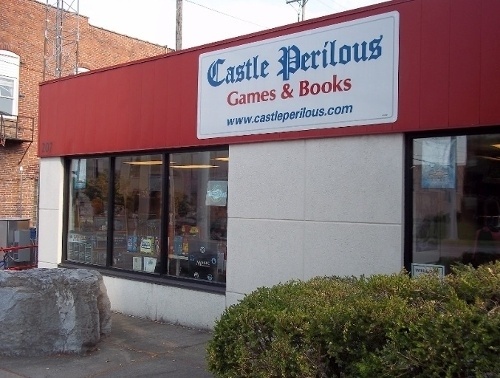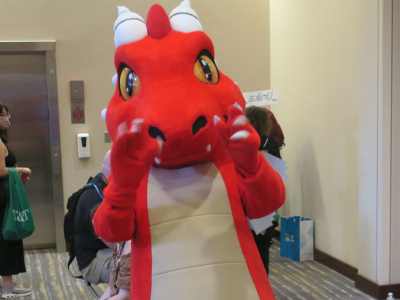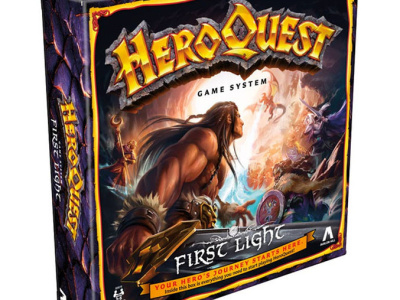Rolling for Initiative is a weekly column by Scott Thorne, PhD, owner of Castle Perilous Games & Books in Carbondale, Illinois and instructor in marketing at Southeast Missouri State University. This week, Thorne looks at how retailers compete with other sources of the same kinds of entertainment.
Reading Milton Griepp’s column this week (see "A Live Experiment In The Attention Economy") this weekend reminded me that I always tell my students every semester that, in a business, stores (and publishers) do not sell a boardgame, card game, RPG, miniature or even a comic or graphic novel, they sell entertainment. (I do not actually use comics as the example, since I have received some complaints about using the industry as an example too much. On the other hand, I also get complaints that I do not talk about it enough. Cannot make everyone happy.) To put it another way, customers do not buy products, they buy benefits. They are not buying a copy of The Boys or a GW Start Collecting Set or a set of Lab Dice or a copy of Wingspan (assuming they can find one), they are buying a few minutes or an hour’s or an evening’s worth of entertainment, and unfortunately, your game or comic is in competition with every other form of entertainment out there.
In addition, from the retailer’s point of view, unless the store offers something unique, like a store-specific variant cover or a RPG or boardgame out of stock everywhere else (Wingspan again), we are offering commodities. The D&D Player’s Handbook your store sells is exactly the same as the D&D Player’s Handbook your customer can buy from Amazon. In fact, due to their bulk purchasing power, Amazon and Target, especially, will offer games to their customers that hobby game stores cannot get through our regular channels, if at all. This is not new; Target started working with publishers to get game exclusives back in 2012 with Star Trek Catan (see "Rolling for Initiative – Target Gets Exclusives"), then worked with other publishers to get exclusive versions of Munchkin and Ticket to Ride.
Other than exclusives, everything your store sells is a commodity, a product differentiated only by price (see "Rolling for Initiative – WotC Ends Its Direct Sales Program"). Whether the customer buys that new copy of Hobomancer or Birds of Prey from you or Amazon, the only difference between the actual products is the price charged. The customer will get the same amount of entertainment from the game, no matter where they get it. Due to the economies of scale brought to bear by Amazon and Target, the FLGS cannot compete on price but can compete in two other areas: place utility and time utility.
Place utility involves altering the physical location of an item to make it, generally, more convenient for the customer to acquire or use. It doesn’t matter how ubiquitous Amazon is online, the company still takes time to deliver an ordered game to the customer. If in stock, the customer can travel to the FLGS and pick up the game or even, in today’s COVID-19 environment, have the store deliver the game to them to play that day.
Time utility. Unless you have a website, this is an area where online retailers generally are superior to brick and mortar as websites, barring technical difficulties are open 24 hours a day for ordering. However, if you want the game or comic now the brick and mortar location, if open, provides superior time utility as you can get the pack of Yu-Gi-Oh! now rather than waiting for delivery.
So, yeah, all other forms of entertainment are competing against you and you are essentially selling a commodity but your store can compete on time and place utility (and promotion utility but that’s another topic).
The opinions expressed in this column are solely those of the writer, and do not necessarily reflect the views of the editorial staff of ICv2.com.

Column by Scott Thorne
Posted by Scott Thorne on August 31, 2020 @ 3:20 am CT
MORE GAMES
Thursday July 31, 2025; 'D&D,' 'Riftbound,' and More!
August 8, 2025
The story of Gen Con 2024, as told through ICv2's staff photos, began on the morning of Thursday July 31, 2025 on the convention hall floor.
New Expansion Set for the Classic Fantasy Board Game
August 8, 2025
Hasbro will release HeroQuest: First Light, a new expansion for the classic fantasy board game, into retail.
MORE COLUMNS
Column by Jeffrey Dohm-Sanchez
August 7, 2025
ICv2 Managing Editor Jeffrey Dohm-Sanchez lays out the hotness of Gen Con 2025.
Column by Rob Salkowitz
August 5, 2025
In this week's column by Rob Salkowitz, he looks at the industry's biggest show, held in the midst of some existential issues.








